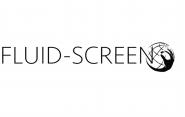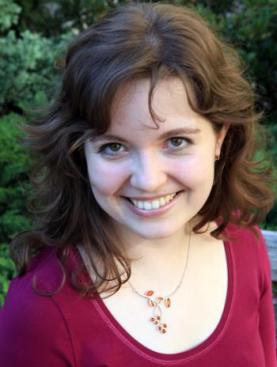SEAS Entrepreneur Q&A: Monika Weber on Launching a Start-up While at Yale

Dr. Monika Weber, CEO and founder of Boston area-based Fluid-Screen, co-invented the bacterial and virus detection and identification technology that her company is based on while still a graduate student in Electrical Engineering at Yale. The Fluid-Screen platform allows users to place a sample directly on a microchip, bypassing the time-consuming step of culturing samples on a Petri dish. The biosensor can detect bacteria in liquid samples in a matter of minutes, with an accuracy greater than 99%.
The company, founded in 2015, is currently working with several major pharmaceutical companies and preparing to send its first prototype to numerous experts, who will use the technology and provide feedback on it.
As part of the SEAS-to-Entrepreneur series, we spoke with Weber about her time at Yale, launching a start-up company, and the future of Fluid-Screen.
 When you came to Yale, did you have plans to eventually start your own company?
When you came to Yale, did you have plans to eventually start your own company?
Yes, I was very excited about the entrepreneurial mindset and that is one of the reasons I came to the U.S. I really wanted to be at the intersection of cutting-edge science, technology and commercial applications.
When did you know that your work could be the basis for a start-up?
It started in 2011 when there was the outbreak of E. coli contamination in Europe. There was E. coli in the food supply, and by time the produce arrived, there were still no test results. Thousands of people got sick, and over 50 people died because they were not able to test and contain the contaminated produce.
I already had some background - I had taken some classes, including a medical design class where my colleagues and I designed the first concept behind Fluid-Screen. It was a device that would detect the bacteria in meat. When the outbreak in Europe happened, we had already been thinking about it, and I realized that there was a huge need, and we had this solution.
At that point, what steps did you take?
Concurrent with the outbreak, NASA held a “Create the Future Design Contest” seeking innovative ideas that could change the world. I applied and I was honored with the grand prize. That really jump-started the whole project, because now we had funding, all these contacts, and there was a lot of publicity - there were over 200 articles written at the time about Fluid Screen. It showed the potential interest from commercial customers and it really got me on the track of starting a new venture. Then I spent the next four years developing a prototype of the microchip. My research at Yale was about understanding how bacteria move in an electric field, and it became a part of my Ph.D. thesis. It is now the scientific basis behind Fluid-Screen.
What advice would you give students with similar ambitions?
I would say that the key thing is people. Find people who would be supportive - that matters a lot. And teammates who want to see the idea through fruition. I'm really grateful to [SEAS Deputy Dean] Vince Wilczynski who was really one of the first people who supported me and really helped me get on the pathway from a scientist to becoming an entrepreneur. And I really want to thank my early investors in Fluid-Screen whom I met during my time at Yale through the Yale Alumni network. And of course, Dr. Jim Tyler ‘65, who was the main founder of the Center for Engineering Innovation and Design (CEID), is also a Board Director and an investor in Fluid-Screen, so I have this amazing opportunity to work with him to learn from him, and hopefully replicate his success in the business world. David Cromwell, who was a finance professor at the School of Management and the first Board Director at Fluid-Screen, helped me get the company of the ground and was a much-valued mentor. Very sadly, David Cromwell passed away. He contracted an infection during his hospital stay. This tragedy motivated me and the entire team more than ever to bring Fluid-Screen to market to prevent loss of life from hospital acquired infections in the future.
You took part in the SEAS Advanced Graduate Leadership Program (AGLP) - how did that help?
I loved it - as part of AGLP, I took classes. It was one of the reasons I was able to take classes at the Yale School of Management. Then I encountered some wonderful mentors, and the program also provided lots of coaching, so both AGLP and the CEID were very instrumental for me at a very early stage of starting a venture.
How did the class help?
In the fall of 2013, I took a class in entrepreneurial business planning at the School of Management with Prof. David Cromwell and Prof. Maureen Burke. The whole point of the class was to write a business plan for a new business, which was perfect for me because it helped me learn as a scientist how to start a company and how to think about commercialization.
You’re expecting feedback soon from pharmaceutical companies on the device. What’s your long-term goal for Fluid-Screen?
We envision a chip that will plug into a smartphone - imagine you travel somewhere in the world and there’s an outbreak of, for example, COVID and every person would be able to take their smartphone, place a sample on a chip, and within 30 minutes know if they have a bacterial or viral infection. We believe that people make better decisions when they have access to the right information. We want to provide this information to people when they need it so they can make these decisions quickly, rather than have to wait days for the test results.
How do you see the future of Fluid-Screen?
In the convenience of your home you will have a Fluid-Screen microchip that plugs in directly to a smartphone. The Fluid-Screen microchip in minutes will give you information about bacteria and viruses present in the sample. With Fluid-Screen you will be able to test water and food before you eat it, and know that they are safe. If you do get sick, you will know what causes the disease and the doctor will have the information to prescribe an accurate treatment.

